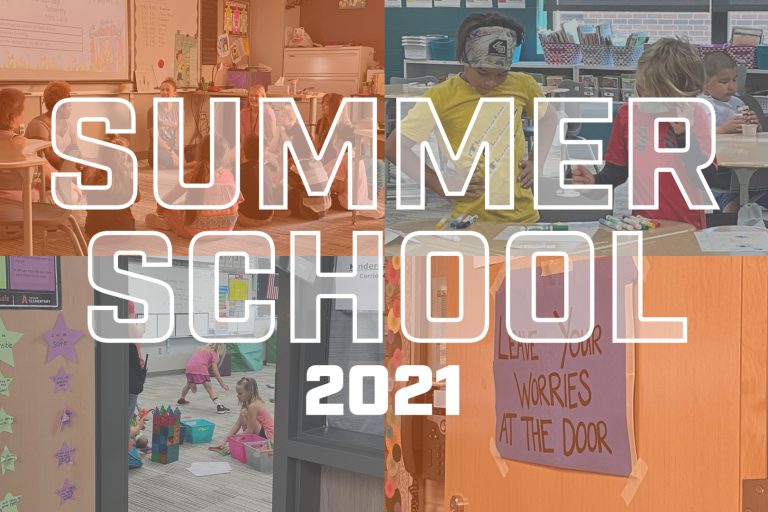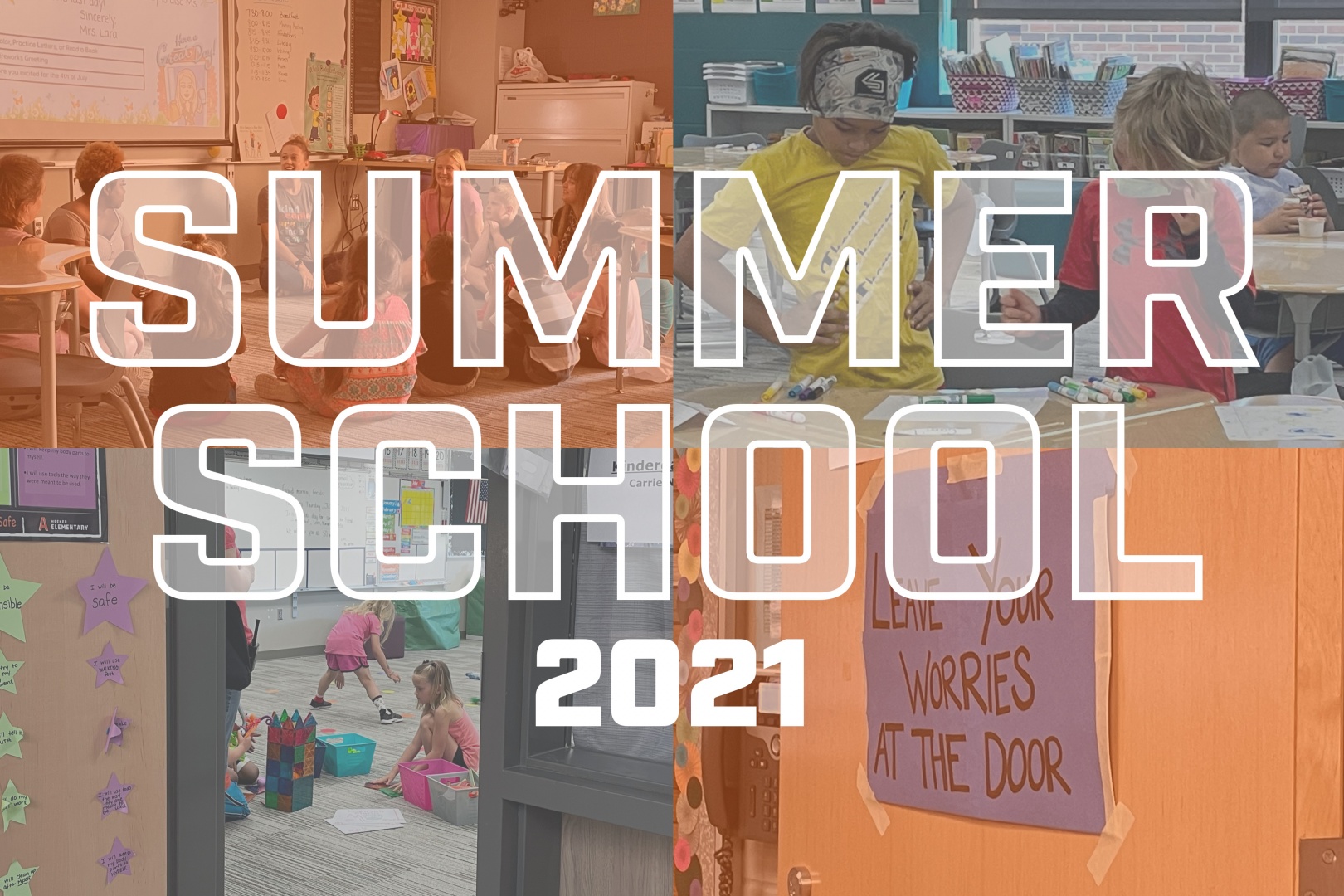

Summer School 2021

At the Ames Community School District, June 10 was officially the last day of the 2020-2021 school year. For some students, teachers, and staff, they headed back to classrooms on June 14 to engage in summer learning. However, this learning is not like what you might envision as summer school. It’s an environment rich with fun, hands-on, and engaging curriculum unlike any other.
“It is important that summer school doesn’t feel like school,” said Anthony Jones, Director of Equity. “Yes, students will be learning and instruction should be targeted based on students’ academic goals in reading and math, however, the learning must be fun and engaging.”
Created by the Ames CSD, this tuition-free, invitation-based opportunity catered to students in all grade levels, kindergarten through 12th grade. Sessions were offered at Meeker Elementary for grades K-8 and Ames High School for grades 9-12. While each session, grade level, or student may have had different objectives, there was one clear goal; helping students build the confidence to progress to the next grade level. By taking an invitation approach, this allowed the District to give specific, targeted attention to the students who needed it most.
Ames CSD teachers Ben Matthies and Matt Smith led this year’s program. They, along with 20 teachers, a behavior interventionist, instructional coach, school nurse and Iowa State University students working on practicum credit, worked to make the summer program not only successful, but fun. In addition, there were numerous staff ranging from technology to custodial, all who kept education going just as they do throughout the regular school year.
“I just can’t say enough about the staff,” said Smith. “There is no way we could have been successful without all of the support.”
Kindergarten through 8th grade sessions were mornings and afternoons Monday through Thursday from June 14 through July 22. Families had the flexibility for their students to partake in either the morning session only or both. Areas of focus included literacy, math, and English learner programming, as well as engagement and study skills.
“One of the big things we’ve focused on is the social/emotional side,” said Smith. “Developing skills so that when we come back to school in the fall, [students] know how to be safe, thoughtful, and responsible.”
Safe, thoughtful, and responsible is an expectation from Positive Behavior Interventions and Supports (PBIS), a school-wide framework that focuses on the positive things students are doing. With smaller class sizes during summer, a relaxed atmosphere, and the chance to build relationships, the system of support for students is nearly endless.
And don’t forget the partners who come together to make the summer programming happen!
“The partnerships that we have with United Way of Story County, Boys & Girls Club, Iowa State University, Ames Public Library, Youth and Social Services, and parents has always been great to support our students who need summer programming,” said Jones.
Thanks to partners from YSS, the afternoon session brought learning with an extra dose of fun. Kindergarten through 4th grade students had the opportunity to work with a YSS partner on a variety of enrichment activities with a STEM focus. Lessons from making circuits out of playdough and batteries to a laser maze students must navigate brought their fair share of excitement to classrooms. Lessons Smith said are educational, but that don’t always feel like traditional lessons to students.
“Kids love the hands-on stuff because they bring a space to give students actual experiences,” said Smith. “Those types of skills can really spark a whole new interest level.”
The 9th through 12th grade sessions were fully credit recovery focused. Credit recovery gives students the opportunity to retake credits for academic growth and stay on track for graduation. While this has been a focus for these grade levels over the summer for a number of years, according to Matthies, it was revamped and given a different mix than has been done in previous years.
“Just coming off a pandemic, we saw students with gaps in learning,” said Matthies, who works mostly with 9th through 12th grade students. “For students nearing the end of high school, we work to increase confidence which helps them meet their graduation goals and meet them on time.”
Added to the summer mix was an executive functioning/skills class for 9th and 10th graders. This class was a one hour session every day from June 14 through July 1. Each session had a specific purpose with personalized lessons, including topics such as time management, task initiative, self-control, and persistence. Teaching these skills early in a student’s high school career helps build that needed confidence, which has the potential to set them up for success even beyond high school.
“We’re talking skills that are about everyday life,” Matthies adds. “Skills that even we as adults can benefit from.”
After summer programming ends, both Matthies and Smith said they most appreciate the community built among teachers and students that extends across school buildings. By having multiple people from many different areas who know students, it creates a network of support that extends far into the future. This network is valuable to furthering student success.
“Summer school usually serves as a learning program to reduce summer learning loss and improve student achievement,” said Jones. “However, the impact of back-to-back interruption due to COVID-19 is a tall order for summer school to do alone. It is important to have a community that works together with the summer school program to lessen this impact on students.”